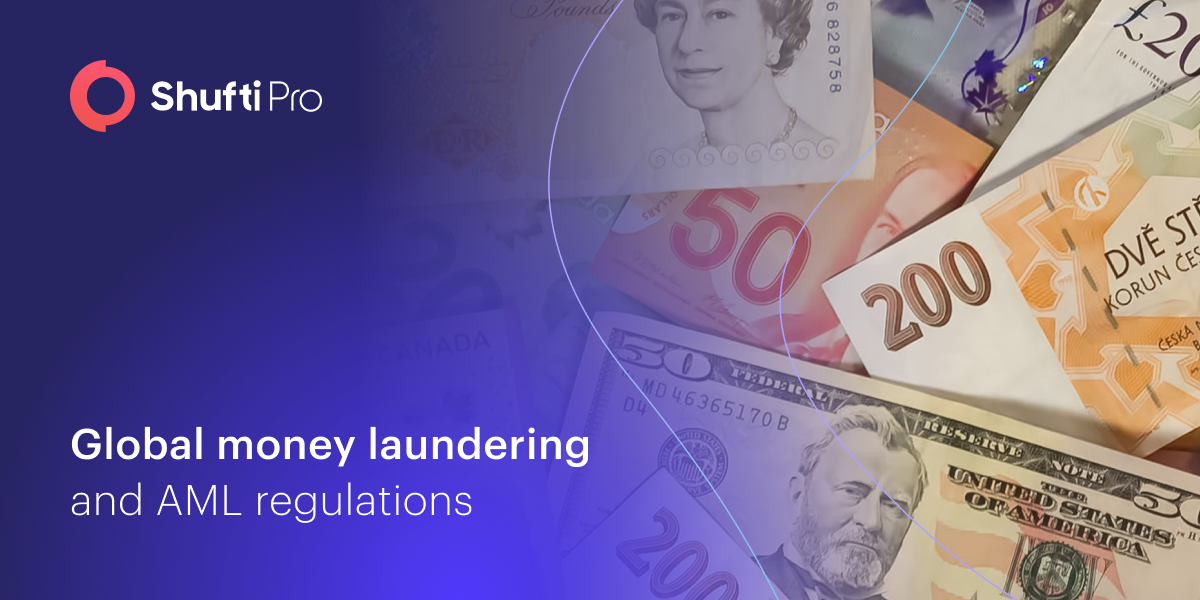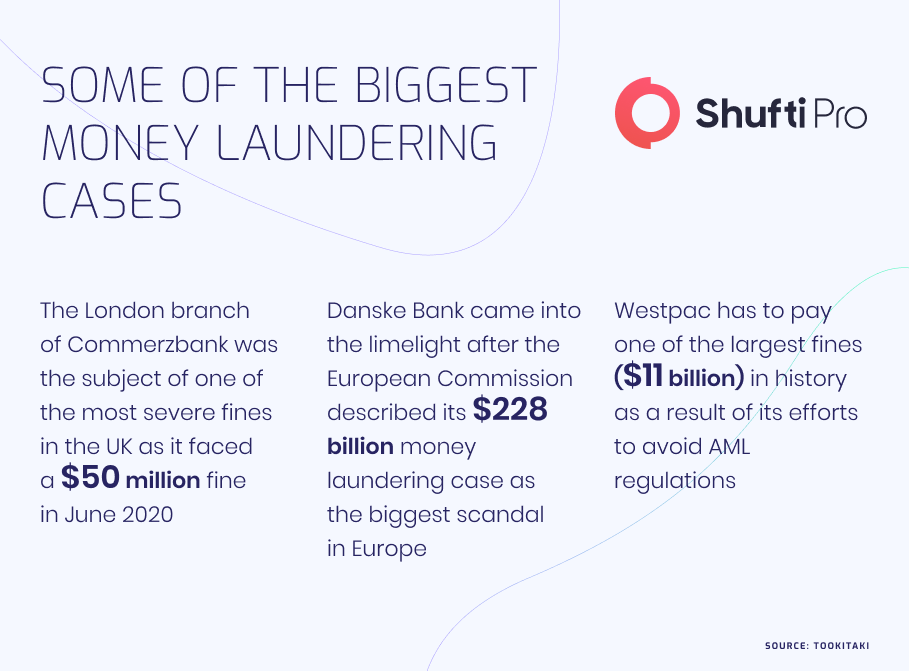How Global AML Regulations Safeguard Financial Processes from Money Laundering

Growing a business in any part of the world requires effective AML compliance measures as a necessary means to meet global financing requirements. With new and updated legislative actions being taken by financial regulators throughout the global financial landscape, organizations also need to take steps to enforce necessary rules.
According to experts, approximately four-fifths of all money laundering cases are traced back to trade-based money laundering. Unlike the measures taken to circumvent financial crimes in banks and traditional financial institutions, identifying money laundering schemes in trade is a tough process.
Trade-based Money Laundering
Although trade-based money laundering does not sound like an alarming issue at first, it is a much more hidden way of moving illicit money through the financial paradigm. Trade-based money laundering is done through items other than just money, and involves paying less for imports and exports to avoid coming into the crosshairs of financial regulators. According to Global Financial Integrity experts in Washington DC, there was a gap of $1.6 trillion in trade statistics between nations in 2018. This means that a colossal amount of money is being laundered globally without a trace.
The money laundering expert and US enforcement veteran John Cassara told British Columbia’s Cullen Commission in December 2020 while talking about trade-based money laundering: “It is the largest money laundering methodology in the world, and it’s the one that least recognized and enforced. And it breaks my heart. I just think the overall magnitude of the problem is enormous.”
Moreover, Transparency International reported in its Russia chapter that unknown citizens in the country laundered $820 million by overpaying for injection moulding machines and other imports
“The money laundering scheme we discovered was functioning from 2014 to 2016. It was specifically a scheme, actions of the launderers were recurrent and predictable. The fact that 40 billion rubles were siphoned off unnoticed says that Rosfinmonitoring’s system for identifying and investigating money laundering schemes, especially transborder ones, is inefficient,” Transparency International Russia states.
Global AML Regulations
The US Bank Secrecy Act
In the United States, the core anti-money laundering regulation is the Bank Secrecy Act (BSA), which is aimed at combating money laundering as well as other financial crimes. The authority responsible for enforcing the regulations of the BSA is the Financial Crimes Enforcement Network (FinCEN). The scope of the BSA and other regulations in the US is often updated or amended based on the emerging methods of financial crime.
For instance, the Patriot Act of 2001 amended the BSA to include counter-terrorist financing (CTF) measures. Financial institutions are thereby required to implement internal AML programs according to their customers’ risk profiles. Moreover, the AML measures must include documented policies for employee training, audits, and compliance officers. The BSA also has the requirements of AML reporting that include Suspicious Activity Reports (SAR), Currency Transaction Reports (CTR) and 8300 forms for high-value transactions.
The Financial Action Task Force (FATF)
The Paris-based global financial watchdog Financial Action Task Force dedicates its efforts to combat money laundering and terrorist financing. The FATF has 36 member states and oversees financial operations in every major hub across the world. The primary goal of the FATF is to establish standards and ensure the implementation of AML Compliance.

For effective AML compliance, financial firms are required to implement effective KYC (Know Your Customer) measures for verifying the identities of their customers. They must also perform background screening and secure the transaction records of their high-risk clients, as well as report suspicious transactions to the relevant authorities.
The EU 5AMLD and 6AMLD
The EU’s Anti-Money Laundering Directives issue the AML/CFT legislation through all of its member states. The MLDs are issued time and again to impose new regulations to counter the ongoing and new methods of money laundering and terrorism financing risks faced by financial institutions. The 5AMLD came into effect on 10 January 2020 and included a cryptocurrency regulation along with reporting obligations for crypto wallets. Whereas the 6AMLD came into effect in June 2021 and includes a detailed definition for money laundering offences along with information about the extended scope of money laundering and new penalties for those convicted of money laundering.
The Financial Conduct Authority (FCA)
In the UK, the financial sector is regulated by the Financial Conduct Authority. It is aimed at preventing financial crimes like money laundering, terrorist financing, and other such crimes. The FCA’s goal is to secure customers’ interests and maintain market integrity. The FCA sets a minimum legal standard for financial products and services being offered in the country and imposes penalties as well as bans for non-compliance. It also supervises financial institutions to determine whether AML regulations are adhered to, including risk assessments and suspicious activity reporting.
The Hong Kong Monetary Authority (HKMA)
The Hong Kong Monetary Authority is the regulatory body in charge of combating money laundering and terrorist financing. The HKMA directs its efforts to ensure that all financial institutions adhere to the regulatory requirements by implementing an effective AML/CFT program. These measures must include a risk-based approach to identify and mitigate the risks of money laundering, as well as procedures for auditing, employee training, and ensuring AML compliance.
AUSTRAC
The Australian government’s primary financial authority which is aimed at fighting money laundering is the Australian Transaction Reports and Analysis Centre (AUSTRAC). AUSTRAC works under the authority of the Anti-Money Laundering and Counter-Terrorism Financing Act (2006) and points out the risks of crimes that can do harm to the financial paradigm. AUSTRAC utilises its financial intelligence resources to identify and mitigate the risks of money laundering. It also requires financial institutions in Australia to report suspicious transactions along with details when they exceed a certain threshold.
What Shufti Offers
The global financial landscape sees significant changes in the KYC/AML regulations through the years. Criminal activities have increased and taken new forms, requiring almost every state to reconsider AML/CFT laws. FINTRAC, FinCEN, AUSTRAC, and other authorities have already enforced amended regulations.
Considering the present situation, businesses and financial institutions must incorporate robust solutions to verify the identities of their customers. Shufti’s robust AML Screening solution ensures that your business stays compliant with global regulations while preventing it from becoming a victim of money laundering.
For information on how we can help you in KYC/AML compliance, get in touch with our experts.











